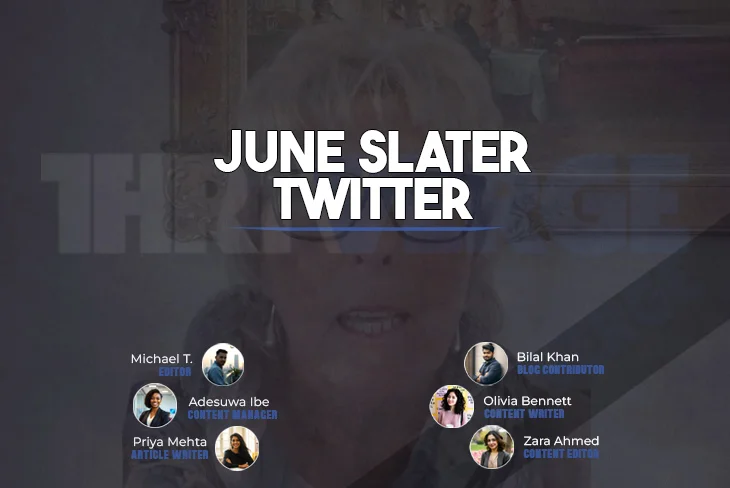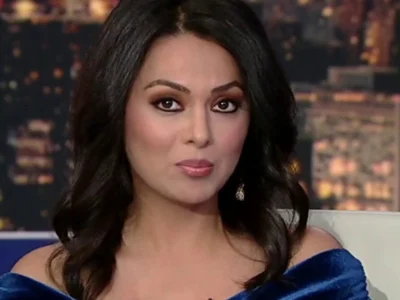
In the vast world of social media, there’s no denying the influence of Twitter. And one personality who’s making waves in the UK political scene is June Slater. With a presence that can’t be ignored, “June Slater Twitter” is where political commentary meets raw authenticity. But why does her Twitter activity matter so much, and what kind of impact does it have on UK politics?
Let’s dive in and explore why June Slater’s tweets have everyone talking.
Who Is June Slater?
June Slater didn’t start as a political commentator. She was a retired businesswoman before stepping into the spotlight. But somewhere along the way, she found herself diving headfirst into the heated pool of political commentary. What caused this change? Well, it all seemed to happen around the time of the Brexit debate, a turning point not just for her, but for many in the UK. June Slater’s motivations for activism come from her own experiences—whether it’s her take on immigration, the Brexit campaign, or her concerns about what’s going on in the UK.
A lot of folks remember her from her outspoken Facebook videos, sharing opinions in a way that’s both blunt and entertaining. June Slater doesn’t mince words, and it’s this approach that’s made her a polarizing but significant voice. She is the kind of person who either makes you nod in agreement or furrow your brow in disagreement—but one thing’s for sure: she’s not easily ignored.
June Slater’s Twitter: A Platform for Engagement
If you’re curious about June Slater’s Twitter, you’ll want to head straight to her handle, @juneslater17. Her Twitter presence has grown rapidly, amassing thousands of followers who eagerly watch for her latest takes. Her content is straightforward, often coming with a side of satire. Whether she’s discussing Brexit, government policies, or weighing in on the latest headline, she does it her way—with passion and a dose of humor.
She’s the kind of Twitter personality that doesn’t shy away from controversy. Instead, she jumps right into it, using her platform to question authority, debate policies, and share her political analysis. One minute she’s taking a jab at politicians like Boris Johnson or Theresa May, and the next, she’s rallying support for causes she believes in. Her tweets range from biting sarcasm to serious calls for change—a mix that keeps her audience engaged and coming back for more.
From Facebook to Twitter: Expanding Her Influence
June Slater’s rise as a political commentator didn’t just start with Twitter. Facebook was actually her launchpad. She used the platform to share videos—satirical, blunt, and often hilarious—that called out politicians and criticized policies. These videos were a hit, gaining traction among those who felt similarly frustrated by the political climate.
But as her popularity grew, so did her desire to reach a wider audience. This is where Twitter came in. The speed and reach of Twitter allowed June Slater to engage in real-time conversations, offer quick commentary on breaking news, and connect directly with her followers. Her following on Twitter kept growing, and before long, June Slater became a recognized name in political circles.
Amplifying Political Discourse in the UK
One of the key moments in June Slater’s journey was her involvement in the Brexit campaign. For many, Brexit was a confusing, polarizing issue that sparked heated debates throughout the country. June Slater was one of those who took a strong stance, voicing her support for the Leave campaign. And her influence didn’t go unnoticed. She managed to bring attention to various aspects of Brexit, highlighting her views and convincing many to think differently about the topic.
Her influence goes beyond just Twitter. She’s appeared on GB News, where she shares her opinions on national television. She’s also been involved with “Hearts of Oak,” a platform dedicated to discussing UK issues that mainstream media might overlook. These appearances help amplify her voice beyond just social media, turning her into a full-fledged political commentator.
June Slater isn’t just a commentator; she’s an influencer. She’s using Twitter not just to express her own opinions but to encourage others to engage in political discourse. From Brexit to immigration policies and COVID-19 restrictions, she’s never shied away from expressing her thoughts—no matter how controversial they might be. This has earned her both admiration from her supporters and criticism from her detractors, but ultimately, her influence on political conversations in the UK is undeniable.
The Role of Satire and Humor in Her Commentary
What sets June Slater apart from many other political commentators is her use of satire and humor. Her Twitter timeline is filled with posts that make you chuckle while also making you think. For instance, her critiques of political figures often come in the form of humorous observations, which resonate with her followers. Humor has always been a powerful tool in political commentary—it can cut through the noise, break down complicated issues, and make them more relatable. And June Slater does this effortlessly.
But humor isn’t just a tool for entertainment; it’s also a way to build a community. On Twitter, June Slater’s followers engage with her content not just by liking or retweeting, but by adding their humor and commentary, creating a kind of ripple effect. This level of interaction helps her Twitter account remain a lively space for political debate—a place where people come not only to hear what she has to say but to join in the conversation.
Impact and Controversies
June Slater has always been candid, and with that candor comes controversy. Her stances on topics like immigration, COVID-19, and distrust in government institutions have often been met with both applause and backlash. For some, she’s a voice of reason in a sea of politically correct commentators. For others, her opinions can seem extreme or misinformed.
For instance, her outspoken critique of COVID-19 lockdowns made waves, especially during the pandemic. She challenged the effectiveness of government measures, questioned the reliability of institutions, and made her skepticism clear on social media. This stance earned her support from those who felt similarly, but it also brought criticism from those who supported the restrictions.
The same goes for her views on immigration. June Slater has not hesitated to share her concerns about immigration policies, arguing for stricter regulations. Her critiques often spark heated debates on Twitter, with some supporting her stance while others criticize it for being too harsh.
Yet, despite the controversy, June Slater’s ability to create conversations and spark debate is what has made her a prominent figure in political commentary. Whether you agree with her or not, her influence on political discourse is hard to ignore.
Broader Social Media Presence
Twitter may be where she’s most active, but June Slater isn’t confined to just one platform. She also has a presence on YouTube, where she runs the channel “June Slater UK Politics Uncovered.” On YouTube, she’s amassed over 38,000 subscribers—a testament to her growing influence beyond just the Twitter sphere.
Her content on YouTube tends to be longer, giving her more time to elaborate on her thoughts and dive deeper into the issues. This is where her followers can get a more in-depth look at her opinions and analyses. Much like her Twitter, her YouTube channel covers a range of political topics, from Brexit to the latest political scandals, all with the same straightforward, no-nonsense attitude.
June Slater also continues to use Facebook, where she connects with her audience in a slightly more personal manner. Facebook allows her to share not just her videos and opinions but also engage with her followers through comments and discussions, creating a more community-driven space.
The Key to Her Influence
What truly sets June Slater apart from other political commentators is her community engagement. June doesn’t just broadcast her opinions—she interacts with her audience, replies to tweets, shares other people’s content, and makes sure her followers feel heard. On Twitter, you can often find her engaging in back-and-forth discussions, responding to questions, or retweeting opinions she agrees with.
This level of interaction makes her seem more approachable and more relatable, which is why her audience continues to grow. June Slater’s Twitter isn’t just a place where she posts her thoughts; it’s a space for debate, discussion, and even a bit of fun. The same community feel extends to her other platforms, whether it’s YouTube or Facebook.
The Importance of Social Media in Modern Politics
June Slater’s influence is a great example of how social media has changed the landscape of political commentary. In the past, political opinions were often shaped by mainstream media. Today, platforms like Twitter and YouTube allow s like June Slater to bypass traditional media and reach audiences directly. This direct line to the public allows for a new kind of political discourse—one that’s more interactive, raw, and, at times, more divisive.
For many, social media personalities like June Slater provide a refreshing alternative to traditional news outlets. They offer perspectives that might not be covered in the mainstream media, and they do it in a way that feels more personal. June Slater’s tweets are not crafted by a PR team—they’re her genuine thoughts, and this authenticity resonates with her audience.
Conclusion
June Slater’s Twitter influence is a testament to the power of social media in amplifying political discourse. From her beginnings as a retired businesswoman to becoming a notable figure in UK politics, June has used her platform to bring attention to issues she believes matter. Her straightforward, often humorous approach has garnered both supporters and critics, but one thing remains clear: she has managed to carve out a space for herself in a crowded political landscape.
Through Twitter, YouTube, and Facebook, June Slater continues to share her views, engage with her followers, and influence political conversations. Whether you agree with her or not, there’s no denying the impact of “June Slater Twitter” on modern political engagement in the UK.









